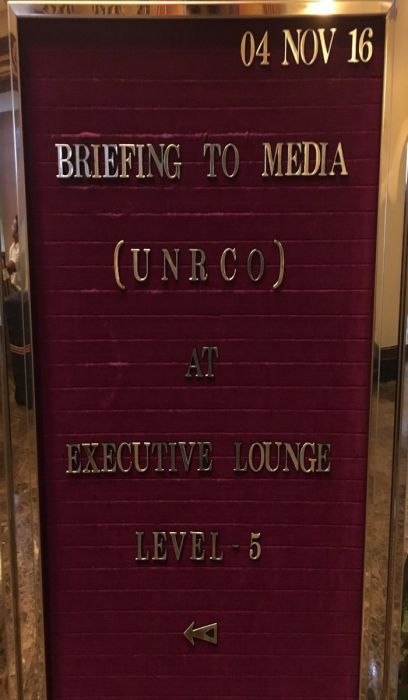Nine foreign diplomats visited several villages in Maungdaw Township, Rakhine State, this week to “get a general sense of the situation” in the aftermath of a series of attacks on police and the ensuing military response.
Six of the diplomats briefed the press this morning at Yangon’s Kandawgyi Palace Hotel to recount what they saw in the “operation zone”.
UN Resident and Humanitarian Coordinator and UNDP Resident Representative Renata Dessallien said that while the visit was a good first step toward access for humanitarian assistance, it was a not a fact-finding mission or a humanitarian assessment. She said the group visited all of the villages on its itinerary except for one that was precluded by “logistical constraints.
US ambassador Scot Marciel pointed out that while some of the villages they visited had been vacated by their inhabitants amid the heavy militarization of the area, other villages were not significantly affected.
He also recounted seeing some burnt homes in the villages and others that were not burnt.
UK ambassador Andrew Patrick described the urgency among some villagers to share their story, saying they returned to their villages, which they had previously fled, when they heard a group of diplomats would visit, and they “said things that would have been unwelcome to the security forces” that were accompanying the diplomats.
In response to a question about the Myanmar military training and arming non-Muslim civilians in Maungdaw, EU ambassador Roland Kobia said the Myanmar government is against the creation of parallel forces.
When asked whether the group could verify allegations of rape perpetrated by security forces against Muslim women, Dessallien said “the nature of our mission did not allow us to delve deeply” into the issue, but she called for an independent, credible investigation into the allegations.




